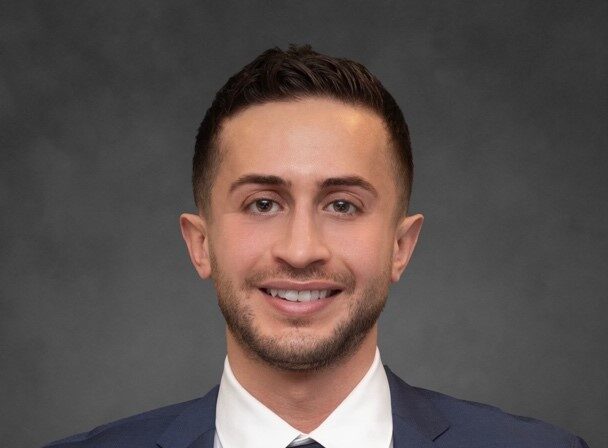DEARBORN — Mayor Abdullah Hammoud has announced the appointment of Ali Abazeed, MPH, MPP to serve as the inaugural director of the newly established Department of Public Health (DPH).
Abazeed is a Dearborn native who most recently served as a public health advisor at the National Institutes of Health (NIH), the federal agency responsible for conducting and supporting the nation’s biomedical and public health research.
Hammoud, an epidemiologist by training, said that this was a need for the city.
“Nothing could have better clarified the need to upgrade our public health systems than this once-in-a-century pandemic,” he said. “This department is about being accountable to our residents and no longer deferring our responsibility for the public’s health to other venues. Dearborn’s urgent health challenges demand innovative solutions, and that starts with bringing in the caliber of expertise that can meet those challenges head on. I’m proud to welcome Ali Abazeed back home to work on the issues he has devoted his life and career to.”
Before joining the NIH, Abazeed served as an advisor at the Detroit Health Department, where he bolstered efforts to reverse water shutoffs and revitalize human services following the city’s bankruptcy. He also worked with the United Nations Development Program (UNDP) on maternal and child health intervention in the refugee camps of Lebanon.
Abazeed is a three-time graduate of the University of Michigan, with a master’s degree in public health, a master’s degree of public policy and a bachelor’s of science degree.
Abazeed’s NIH duties spanned several areas of public health research and practice, including supporting the National Cancer Institute (NCI), where he helped manage the more than $100 million Beau Biden Cancer Moonshot programs, activities and grants. He also led an initiative with the Harvard T.H Chan School of Public Health to create the first-ever National Framework for Policy Implementation Science, a discipline devoted to evaluating the translation of scientific research into public policy.
“I am honored and excited for the opportunity to help establish a Department of Public Health for my hometown,” Abazeed said. “There is now unprecedented awareness about the vital role of public health in all sectors of society. I look forward to building a department that addresses the broad range of factors that impact a person’s health — including where they live, learn, work and play. We commit to work collaboratively with the residents and community partners to promote the full potential for health and well-being for all. I applaud Mayor Hammoud for this vision and look forward to working together on this transformational endeavor.”
Abazeed began his executive branch service as a Presidential Management Fellow — the country’s premier federal leadership development program. He subsequently worked across the U.S. Department of Health & Human Services (HHS) in the Office of the Secretary, Office of Refugee Resettlement and the Office of the Assistant Secretary for Policy & Evaluation — the principal health policy advisory group to the U.S. Secretary of HHS.
The city’s DPH will be tasked with modernizing the approach to health improvement beyond traditional brick-and-mortar health services.
Dearborn’s last health department, which employed a combined medical staff of five and offered low-cost clinical care services, shuttered in 2011.
In establishing a modern version of the DPH, the city is trying to move beyond point-of-care service and immunizations — often referred to as “Public Health 1.0” — and move into a Public Health 2.0 and 3.0 model that focus on rigorous population level assessment, policy development and the social determinants of health (SDoH).
“By engaging in cross-sector collaboration, conducting a needs assessment, prioritizing environmental justice and collecting timely, reliable data to assess the impact of prevention initiatives, the city of Dearborn can be a leader in advancing population health and health equity,” Hammoud said.






Leave a Reply